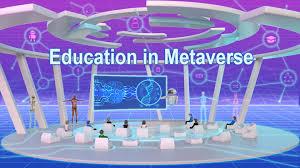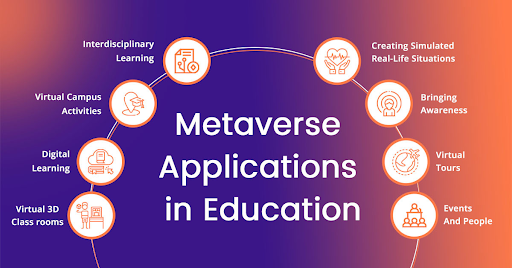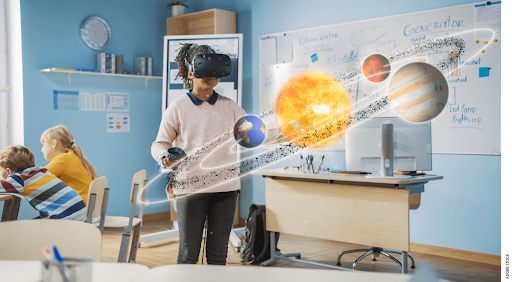Discover the Wonders of the Metaverse: Your Portal to Virtual Worlds
The Metaverse: A Comprehensive Overview
Unlock the potential of virtual worlds. The Metaverse is the gateway to immersive experiences and unparalleled online exploration.
Origins and Definitions
Initially emerging from the genre of speculative fiction, the notion of the metaverse has undergone a significant transformation, with its preliminary forms manifesting in the spheres of virtual reality and digital interactive entertainment. The term gained prominence following its mention in Neal Stephenson's 1992 literary work "Snow Crash," although a multitude of scholars and enterprises have since contributed to and elaborated on the concept over time.
The metaverse is heralded as the next evolutionary phase of the internet, offering an immersive and interactive virtual experience to users. It amalgamates a variety of digital spaces, encompassing shared virtual environments, online gaming realms, and marketplaces dedicated to the exchange of Non-Fungible Tokens (NFTs).
Key Features and Applications
The metaverse is characterized by its:- Immersive experiences: Users can interact with virtual environments using VR, AR, or other advanced technologies, creating a sense of presence and embodiment.
- Social connections: The metaverse facilitates social interactions, allowing users to connect with friends, family, and colleagues in a shared virtual space.
- Economic opportunities: The metaverse offers new business models and revenue streams, such as virtual goods, services, and experiences.
- Interoperability: Users can move seamlessly between different virtual worlds, taking their digital assets and identities with them.
The Metaverse and Its Influencers
The metaverse has gained significant attention from major tech companies, including Facebook (now Meta), which has invested heavily in the development of virtual reality and metaverse technologies.Other notable players in the metaverse space include Epic Games (Fortnite), Nike, and Microsoft.
The Future of the Metaverse
The metaverse is still in its early stages, and its full potential remains to be seen. However, it is clear that the concept has the potential to revolutionize the way we live, work, and connect with one another. As the metaverse continues to evolve, it will be essential to monitor its development and consider its implications for society, culture, and the economy.The metaverse is a complex and multifaceted concept that is still in its infancy. However, its potential to transform the way we interact with one another and engage with digital content is undeniable. As the metaverse continues to develop, it will be essential to stay informed about its progress and consider its implications for the future of technology, society, and culture.
Potential Applications of the Metaverse
The metaverse, a concept that combines physical, virtual, and augmented realities, offers a wide range of potential applications across various sectors. Some of the most promising uses of the metaverse include:
- Gaming: The metaverse enables immersive gaming experiences, allowing players to interact with one another in a shared virtual environment.
- Healthcare: The metaverse can be used to create 3D clinical applications, monitor patient vital signs, and provide more interactive and user-friendly tests.
- Education and Training: The metaverse can enhance learning experiences by creating immersive environments for anatomy, biology, geography, and chemistry, among other subjects.
- Remote Working: The metaverse can facilitate remote collaboration and communication, making it easier for teams to work together in a virtual space.
- Real Estate: The metaverse can be used to create virtual showings of properties, host open houses, and provide virtual tours.
- Architecture: Architects can use the metaverse and AR/VR to visualize their work in a 3D environment, making it easier to show clients what they will build or have built.
- Retail: The metaverse can be used to create virtual storefronts, host online auctions, and provide customizable shopping experiences.
- Social Media and Social Networking: The metaverse can be used to create virtual worlds for the media industry, providing more realistic scenes for videos and virtual sets for filming.
- Military and Defense: The metaverse can support military applications, such as tactical augmented reality and training simulations.
- Manufacturing: The metaverse can help in training employees on safety precautions, fostering participation in simulations, and landscape planning for manufacturing plants.
The metaverse is still in its early stages, and its full potential remains to be seen. However, it is clear that the concept has the potential to revolutionize the way we interact, work, and connect with one another. As the metaverse continues to develop, it will be essential to monitor its progress and consider its implications for society, culture, and the economy.
Metaverse in the Field of Education
The metaverse has the potential to revolutionize education by providing immersive and interactive learning experiences. Few of the key applications of the metaverse in education include:
- Immersive and interactive learning: Students can virtually step into historical events, explore complex scientific concepts, or practice language skills in virtual environments, making educational content more engaging and memorable.
- Accessibility and inclusivity: The metaverse has the potential to bridge the digital divide, allowing students from all backgrounds to access high-quality educational experiences.
- Personalized learning journeys: The metaverse can equip learners with dynamic learning scenarios, offering the resources required to create and learn through hands-on activities and participation.
- Learning assessment: The metaverse facilitates both formative and summative assessments through learning analytics, providing comprehensive assessments and immediate feedback, thus contributing to more effective learner growth.
- Collaboration and social learning: Students can collaborate and learn from one another in the metaverse, enhancing the social aspects of learning.
- Virtual labs and simulations: The metaverse can create virtual lab environments, allowing students to conduct experiments and practice skills that would be difficult or expensive to do in real life.
- Global learning networks: The metaverse transcends geography, allowing students and teachers to collaborate in virtual classrooms and collaborative environments.
- Reduced bullying and disciplinary actions: Inside the metaverse, teachers can fully control students and their interactions, helping to reduce bullying and impose disciplinary actions easily.
- Blockchain for record-keeping: The use of blockchain in the metaverse can help store transcripts and degrees, reducing paperwork and making evaluations easier. The metaverse is still in its early stages, and its full potential remains to be seen. However, it is clear that the concept has the potential to transform the way we learn, work, and connect with one another.
The metaverse has the potential to transform education by providing new and innovative ways of learning. According to a recent article by Brookings, the metaverse can be designed to offer a context and experiences that enable and encourage collaboration, communication, mastery of content, creative thinking, creative innovation, and confidence. The metaverse can be used to create immersive environments for subjects such as anatomy, biology, geography, and chemistry, among others. It can also provide analytics for educators to help them tailor students' learning and identify areas where students need more help.
The metaverse can also be used to create virtual classrooms, allowing students to interact with one another and their teachers in a shared virtual space. Additionally, the metaverse can be used to create virtual field trips, providing students with the opportunity to explore new places and learn about different cultures.The metaverse can also be used to create virtual showings of properties, host open houses, and provide virtual tours.Metaverse in Education














%20to%20Proof%20of%20Stake%20(PoS).%20The%20image%20should%20depict%20a%20clean%20and%20modern%20design.webp)


Comments
Post a Comment